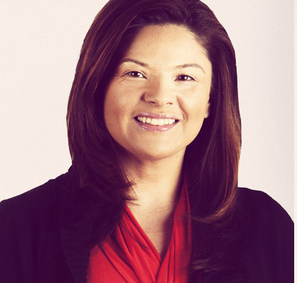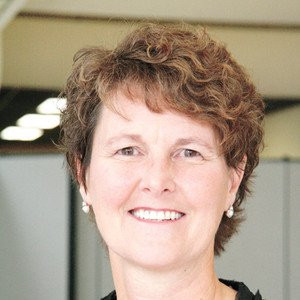It’s All About Education: Could Competency-Based Learning Be the Wave of the Future?
Wednesday, August 12, 2015
Peter thinks school is a drag. He is an avid reader, and he finds his Language Arts and History classes boring. In his mathematics class, he struggles to keep up with the concepts, and he often feels lost. He’s not alone – this is a common issue in schools. Finding the sweet spot where a student is both engaged and challenged is difficult, especially in a classroom full of individuals progressing at their own developmental rates.
Competency-based learning (CBL) allows students to progress as they demonstrate mastery of academic content, regardless of time, place, or pace of learning. Rather than focusing on seat-time (attendance) or credits earned, CBL requires that students demonstrate mastery of skills and concepts (usually through approved assessments) in order to move through the curriculum at their own pace.
Most schools in America are organized according to the Carnegie unit, defined as 120 hours of class or contact time with an instructor. This standard was developed over 100 years ago, after industrialist Andrew Carnegie established the Carnegie Foundation for the Advancement of Teaching. Many educators question whether there might be a better measure of student achievement.
GET THE LATEST BREAKING NEWS HERE -- SIGN UP FOR GOLOCAL FREE DAILY EBLASTIn 2005, New Hampshire abolished the Carnegie unit, allowing students to progress as they demonstrate mastery of material rather than as they complete credit hours. New Hampshire’s local districts and charter schools have had control over how they implement this policy, however, leading to a wide range of practices throughout the state.
At Milan Village Elementary School, for example, every student from second grade on is provided with a laptop, on which software and playlists can be used to individualize learning and tailor coursework. Courses are constructed around skills and competencies that students must master in order to move on.
Sanborn High School students receive feedback based on their mastery of competencies in each subject. Every student has the opportunity to retake exams without penalty in their efforts to achieve mastery, and the school has time set aside each day for teachers to work with students for remediation or acceleration. Teachers belong to interdepartmental professional learning communities focused on helping all students graduate.
The Virtual Learning Academy Charter School (VLACS) exists completely online; students in grades 6 – 12 move through the courses at their own pace. Although some schools are still struggling to incorporate CBL successfully, a report by the Christensen Institute states, “The policies that support competency-based education in New Hampshire have created space for school models to innovate beyond century-old practices of measuring progress based on time instead of learning.”
The District of Columbia Public Schools is launching a task force this month to examine alternatives to the traditional high school diploma route, including CBL, internships and service projects, and GED courses. Proponents say that more flexibility is needed for both students who move quickly through the curriculum and those who need more time in particular subject areas.
Competency Works, a nonprofit organization that shares original research, knowledge, and perspectives on CBL in K – 12 education, recently released a report on CBL in New England. The report outlines the steps the Rhode Island Board of Regents has taken since 2003 to advance CBL in the state. These steps include adding graduation requirements that state that “students must meet partial proficiency on the state assessment in reading and math” and changing the definition of a course so that districts were not bound by seat-time, for example.
One of the obstacles to incorporating CBL throughout our schools is the fact that we would need to agree on a definition of mastery for all grade levels and subject areas. In order for students to demonstrate competence, we will need to have assessments that accurately measure achievement and an agreed-upon threshold of proficiency (such as 75%, for example).
According to the Carnegie Foundation, “The U.S. education system needs more informative measures of student performance. Achieving this goal would require the development of rigorous standards, assessments, and accountability systems—difficult work, especially in the field of higher education, where educational aims are highly varied and faculty autonomy is deeply engrained.”
Interestingly, the higher education world is beginning to explore alternatives to the traditional route to a college degree. Pioneered by Western Governors University in 1996, more than 30 universities including the University of Maryland, Purdue University, and the University of Michigan have joined the Competency-Based Education Network, making a commitment to CBL programming. Participating institutions either offer degree programs with well-defined learning outcomes and rigorous assessment or are on their way to creating them.
Competency-based learning is a concept that has the potential to radically change our schools for the better. Children do not develop at the same rates or in the same ways – some walk sooner than others, some have strong vocabularies at very young ages, some learn better through hands-on experience while others prefer to work collaboratively. Allowing students to move through the curriculum at their own pace, while providing multiple opportunities for practice and mastery of skills and concepts, is an idea whose time has come.
Lauri Lee is an independent consultant with over twenty years of experience in both public and private education, with learners from infants through adults. With experience in teaching, marketing, communications, social media, development, admissions, and technology, she is able to synthesize many of the issues facing our educational system today. She lives in Providence, RI with her family, a big dog, and a small cat. She blogs at http://www.AllAboutEducation.net and you can follow her on Twitter at @fridovichlee.
Related Slideshow: RI Experts on the Biggest Issues Facing Public Education
On Friday November 22, the Hassenfeld Institute for Public Leadership at Bryant University, the Latino Policy Institute of Roger Williams University, the Rhode Island Association of School Committees, the Providence Student Union, and RI-CAN: Rhode Island Campaign for Achievement Now will host Rhode Island leaders in the public and nonprofit sectors for a symposium on "the civil rights issue of the 21st century, adequacy and equity and the State of Education in Rhode Island."
Weighing in on the the "three biggest factors" facing education in the state today are symposium participatnts Gary Sasse, Founding Director of the Hassenfeld Institute for Leadership; Christine Lopes Metcalfe, Executive Director of RI-CAN; Anna Cano-Morales, Chairwoman of the Board of Trustees, Central Falls Public Schools and Director, Latino Policy Institute at Roger Williams University; Tim Duffy, Executive Director, RI Association of School Committees; and Deborah Cylke, Superintendent of Pawtucket Public Schools.
Related Articles
- It’s All About Education: Choosing the Right School for Your Child
- It’s All About Education: How Breakfast Could Help Close the Achievement Gap
- It’s All About Education: After School Programs Make a Difference
- It’s All About Education: Learning Life Skills at Hope High
- It’s All About Education: Failure to Launch - It’s Not Just a Movie
- It’s All About Education: Changing Lives with School Lunches
- It’s All About Education: How Vaccination Affects Schools – and Society
- It’s All About Education: Free College Tuition - Why Just Community College?
- It’s All About Education: A Recipe for Disaster - Common Core Standards for Kindergarten
- It’s All About Education: Inequities in the College Admissions Process
- It’s All About Education: Is the American Dream a Pipe Dream?
- It’s All About Education: School Choice - Vouchers and Tax-Credit Scholarships Don’t Pay
- It’s All About Education: Making a Commitment to Rhode Island’s Children
- It’s All About Education: Divine Providence: Engaging Community
- It’s All About Education: Reading for Pleasure Predicts Academic Success
- It’s All About Education: Why Summer Vacation Should Be Just That
- It’s All About Education: What Kids Learn from Sports
- It’s All About Education: Why So Many Choose Progressive Education
- It’s All About Education: A Broader Definition of Education
- It’s All About Education: The Arts, Education, and Transformation
- It’s All About Education: How Poverty Impacts Brain Development and Learning
- It’s All About Education: Re-Imagining Our Educational System
- It’s All About Education: Can Education Drive Social Change?
- It’s All About Education: High-Quality Early Learning: Necessary For All
- It’s All About Education: The Benefits of Intergenerational Programs













